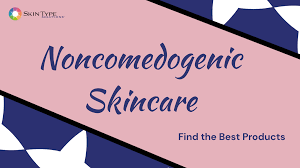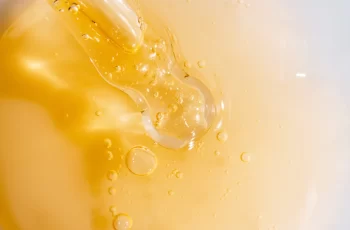
Noncomedogenic Skincare Products for Acne-prone Skin Types
If you get pimples and breakouts from skincare products, you have acne-prone skin and need to use noncomedogenic skincare products that do not clog pores. I am a dermatologist in Miami and have developed the Baumann Skin Typing System of 16 skin types. Eight of those 16 skin types should use noncomedogenic skincare products every day. If you are a teen, or in your 20s, noncomedogenic products may be good for you, but once you are in your 30s you need noncomedogenic antiaging products. If you have hyperpigmentation, you need noncomedogenic skin lightning products. If you are a man, you need products for shaving that will not break you out. Luckily there are many good medical grade skincare brands that are noncomedogenic like Skinceuticals, SkinMedica, La Roche-Posay, Cera Ve and more. Join me as I discuss and review noncomedogenic skincare.
The best way to find noncomedogenic skincare that also targets your other issues like aging, pigmentation, inflammation, and oiliness or dryness is to take the skin type quiz and find out which skin type you are. Then we will help you build a skincare routine of noncomedogenic products that is right for your Baumann Skin Type.
Best Noncomedogenic Products
If you have an acne-prone skin type and are shopping for noncomedogenic moisturizers, foundations and sunscreens, we can help! Look at the sections below for dermatologist-recommended noncomedogenic skincare products.
Noncomedogenic Moisturizers
If you are looking for a moisturizer for acne, you need to think about all of the skin issues you have that you want your moisturizer to treat- and find a noncomedogenic face cream or lotion that contains ingredients to target all of these skin issues. For example- if you have skin aging, you need an antiaging moisturizer that is safe for acne-prone skin. If you have dry skin, you need a moisturizer for dry acne prone skin that also repairs the skin barrier.
These are the best moisturizers for acne prone skin. I divided the into moisturizers for oily and dry acne prone skin, but there are other issues such as aging, inflammation, and pigmentation ot consider when choosing a noncomedogenic moisturizer. Our skin type quiz can help you find the best noncomedogenic face creams to add to your skincare routine.
Noncomedogenic Moisturizers for Oily Acne-prone Skin
If you have oily, acne-prone skin, you need moisturizers that are free of oils, fatty acids, and occlusive ingredients that clog pores.
Not all oils clog pores, so your oily skin types do not always need to choose oil free products. Here are some good noncomedogenic face lotions and creams for oily, acne-prone skin types:
[[M01]]
Noncomedogenic Moisturizers for Dry Acne-prone Skin
Dry acne-prone skin types need noncomedogenic barrier repair moisturizers. These are my favorite dermatologist-recommended hydrating moisturizers for dehydrated skin that tends to break out from heavy moisturizers:
[[M22]]
Best Night Cream for Acne-prone Skin
The best night cream for acne-prone skin is actually a retinol which is usually in a serum form, You will apply this retinol serum before or after one of the previously mentioned moisturizers depending on if you are oily or dry. Click here to learn how to use retinoids properly.
The best retinol serums to use with noncomedogenic night creams:
[[T11]]
Noncomedogenic Sunscreen
Many sunscreens are comedogenic because they contain sunscreen ingredients that clog pores like avobenzone (Parsol), and oxybenzone. Some of my patients report that tinted sunscreens cause acne breakouts more than non-tinted sunscreens, but this has not been proven in any studies. Blow I divide noncomedogenic sunscreens into SPF or oily skin types and dry types- but make sure you are right about if you are oily or dry because many people guess their skin type incorrectly. One way to know if a sunscreen is acne safe is to look for the words “noncomedogenic” on the product label.
Sunscreen for Oily Acne Prone Skin
Noncomedogenic sunscreens for oily skin types should be oil-free or at least not contain any comedogenic oils or fatty acids. Here are some good noncomedogenic untinted sunscreens.
Acne-safe Untinted Physical Sunscreens for Oily Skin
[[S02]]
Acne-safe Untinted Chemical Sunscreens for Oily Skin
[[S01]]
Sunscreen for Dry Acne-prone skin
Noncomedogenic sunscreens for dry skin should have moisturizing ingredients. Here are some of the best untinted noncomedogenic sunscreens for dry skin. I divided them into chemical and physical (mineral).
Acne-safe Physical Sunscreens for Dry Skin
These are my favorite sunscreens for dry sensitive skin. This is my skin type (I am a Baumann Skin Type 4 DSNW) and these are the ones that I prefer:
Acne-safe Chemical Sunscreens for Dry Skin
If you are going to be in the direct sun for over 15 minutes, you need a broad spectrum sunscreen that has more protection. Unless you choose the Pavise SPF with diamond technology, you need a chemical sunscreen. These are my patient’s favorite chemical sunscreens for dry skin that are noncomedogenic:
Noncomedogenic Moisturizer with SPF
The difference between a non-comedogenic moisturizing sunscreen and a moisturizer with sunscreen is minimal. You can use either. You should apply about ¼ a teaspoon of both to get the SPF on the label. However, I could not find a sunscreen listed as a moisturizer with sunscreen that was not comedogenic. So I suggest you use a moisturizer separate from your sunscreen- especially if you have dry skin.
Noncomedogenic Oils
Not all skincare oils are comedogenic. You can learn more about which oils to avoid if you have acne by looking at the list of pore clogging oils below and at this link.
List of Noncomedogenic Oils
These oils are acne safe:
Argan oil
Avocado Oil
Corylus Avellana Seed Oil (Hazel nut)
Essential Oils
Grapeseed Oil
Hemp Oil
Jojoba Oil
Macadamia Nut Oil
Marula Oil
Rosehip Oil
Safflower Oil
Sunflower Oil
Sweet Almond Oil
Noncomedogenic Cleansing Oils
Cleansing oils should not have pore clogging fatty acids. Look for cleansing oils that have the noncomedogenic oils listed above and do not have these comedogenic oils:
Almond Oil
Avocado Oil
Bubussa Oil
Cajeput Oil
Castor Oil
Coconut Oil
Corn Oil
Cotton Seed Oil
Evening Primrose Oil
Mink Oil
Peach Kernel Oil
Peanut Oil
Pumpkin Seed Oil
Sandalwood Seed Oil
Sesame Oil
Shark Liver Oil
Soybean Oil
Sulfated Castor Oil
Sulfated Jojoba Oil
Wheat Germ Glyceride/Oil
The noncomedogenic cleansing oils that do not have these pore clogging oils are listed below.
Noncomedogenic Face Wash
Acne-safe face washes are much easier to find than noncomedogenic cleansing oils. These face washes are safe in acne-prone skin. However, take out quiz to see if these are the right face washes for your skin.
Nolio Salicylic Acid Cleanser is a noncomedogenic face wash that was specially formulated for Oily, Sensitive Baumann Skin Types with facial redness or acne. It contains salicylic acid which unclogs pores and reduces inflammation.
This CLn Acne Cleanser is formulated with sodium hypochlorite to help dissuade acne bacteria from living on the skin and causing acne.
Medature Plantract Cleansing Gel is a noncomedogenic gel face wash is perfect for both dry and oily skin types because it gently cleans the skin without injuring the skin barrier or clogging pores. Great for men and teens!
Zerafite Creamy Cleanser is a good barrier safe cleanser for dry skin that is noncomedogneic. It is hard to find a creamy cleanser that will not clog pores- but this one is acne-safe! Best for Dry Baumann Skin Types.
This can also be used to shave the face while minimizing razor rash.
This gentle noncomedogenic facial cleanser can be used twice a day. It has AHA and BHA hydroxyacids to exfoliate skin, help unclog pores, and give the skin a radiant glow without causing breakouts.
Skinceuticals LHA Cleanser Gel is a noncomedogenic facial cleanser with exfoliating AHA and BHA to keep pores clear. This is great for both oily and dry skin types. I have even used this with good results i my Rosacea patients who usually cannot tolerate acidic cleansers.
Noncomedogenic Makeup
Even if you do not have acne, you can get clogged pores from makeup. So using an acne safe makeup is always a good idea. I divide acne-safe makeup into different types below. Please tell us your favorite noncomedogenic makeup in the comments or review the products you buy to help others with your same Baumann Skin Type find the best makeup that will not break them out.
Noncomedogenic Makeup Brands
Acne safe makeup. is hard to find. You really need to read the product labels to make sure they don’t have dyes, emulsifiers, and other ingredients that clog pores and cause acne breakouts. Many brands like Neutrogena, Almay and Bare Minerals have noncomedogenic makeup. I personally prefer Jane Iredale and Colorescience because they were developed to use in dermatology practices for acne patients.
Foundations for Acne-prone Skin
These are the noncomedogenic facial foundations that I recommend to my patients.
[[CX01]]
Noncomedogenic concealer
When you need a concealer to cover pimples- you obviously do not want to use one that will make you break out. These concealers are noncomedogenic and have ingredients to help pimples go away faster. My favorite acne treatment concealers are:
[[CX03]]
Noncomedogenic Face Powder
Loose powder is usually less comedogenic than a pressed powder in a compact. Mica, silica and talc can also cause acne in some people. However, these powders for acne prone skin have worked well for my acne-prone patients.
[[CX02]]
Noncomedogenic Blush and Bronzers
Noncomedogenic Skin Care Routine
For those with acne-prone skin, the key to an effective skincare routine lies in choosing noncomedogenic products that do not clog pores.
These are the most important steps to find acne-safe skincare and build a noncomedogenic skincare routine:
The first step to finding noncomedogenic skincare is to take our skin care quiz. If you are an acne-prone skin type, our skincare routine builder will only recommend noncomedogenic products to you to add to your skincare routine.
Check ingredient lists on product labels to see if products have any comedogenic ingredients on this list.
Don’t over-exfoliate because that disrupts desquamation and can lead to acne.
Don’t over dry skin with alcohol, toners, or other drying ingredients. This also interferes with desquamation.
Be aware that sun exposure can turn a noncomedogenic skin care product into one that clogs pores.
Always wash your sunscreen off at night.


